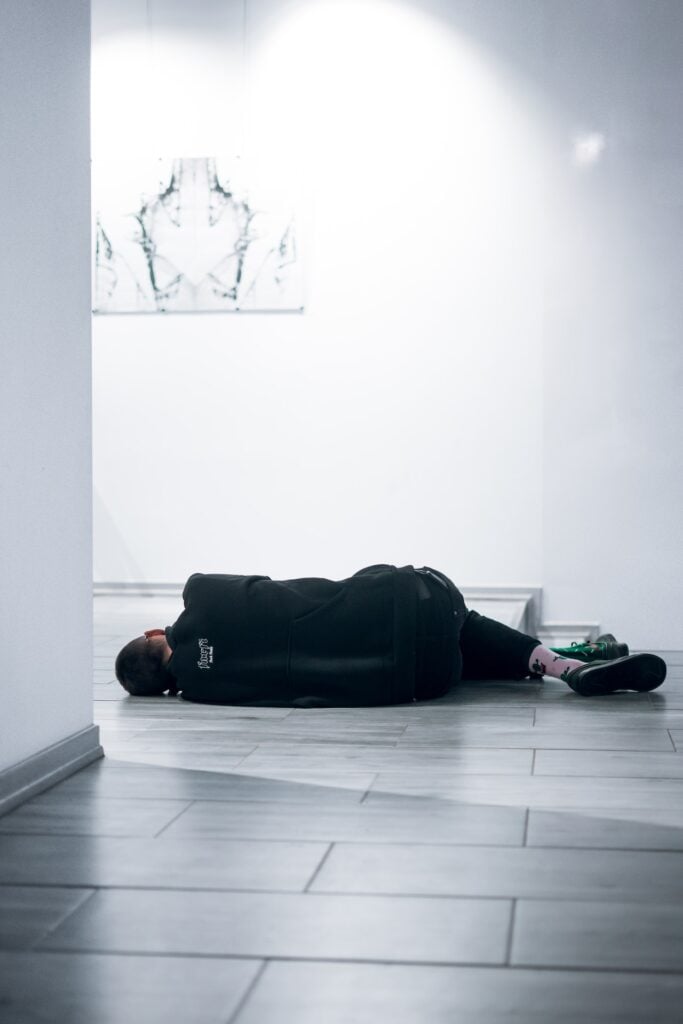
Last Updated On: septiembre 9, 2024
In a medical emergency, gasping is typically characterized when someone snorts, groans, or has agonal/laborious breathing due to lack of oxygen. So, you must know first aid for unconsciousness because then you can save someone from seriously tripping over sharp objects or hurting themselves.
As a lay responder, you will witness the person not responding as you find them unconscious when they are left unattended for a long time. However, the patient or victim can suffer permanent brain damage if you do not promptly provide first aid for unconsciousness emergencies.
Meanwhile, it is common for onlookers to confuse gasping and other strange vocal noises with breathing. Unfortunately, they fail to call 911 or start life-saving chest compressions promptly as the person becomes more unstable or cannot respond.
This also happens when someone dials 911 to report a gasping patient – they frequently respond with a «Yes» when the dispatcher asks if the patient is breathing, leading the dispatcher to mistakenly conclude that the patient is not having a cardiac arrest.
With the lack of accurate information after the responder gets to check the person, they make inaccurate recommendations to the rescuer.
A few minutes later, while performing first aid for unconsciousness, when the gasping stops, the rescuer informs the dispatcher, and that’s when they understand that they are dealing with a cardiac arrest, which, if left unattended for long, leads to brain damage.
The most valuable time had already been lost by then, during which the patient’s heart and brain had no blood supply.
On the other hand, a person has a loss of consciousness when they appear to be asleep and are unable to react to a stimulus.
They could be unconscious for just a few seconds in a local emergency. Such emergencies involve the patient fainting, or they could pass out for a while. It is mostly due to a lack of oxygen to the brain.
Unconscious people are unable to respond or don’t react to shaking or loud noises. The victim might even stop breathing, have a weak pulse or even low blood sugar level. In case of unconsciousness, administer immediate first aid and contact the local emergency team.
After a cardiac arrest, agonal breathing seldom lasts for an elongated time. Thus it becomes critical to begin CPR right away. Gasping is very common after someone collapses or is unable to respond, and the frequency of gasping or agonal breathing reduces with each passing minute. If you don’t know what to do if someone is gasping for air, then call 911 without further delay, and wait till medical help arrives.
You can literally help someone regain consciousness when you know the first aid steps to help them when they are unable to respond. Act smart and fast. Acquire complete knowledge on first aid steps for unconsciousness that will help you be the first one to save a life.
It won’t harm the patient to begin CPR while they are gasping. They can only benefit, and it might even save their lives.
It is crucial to know what to do and act fast when someone becomes unconscious. Before the emergency services arrive, some basic first aid procedures might be helpful, such as looking for small or big injuries and monitoring vital signs. It may be required to provide CPR if a person is not breathing. If a person appears unconscious or unresponsive, the first thing to do is ask them if they are OK in a loud voice. If they don’t answer, give them a gentle shake. However, try to avoid moving the person, but you can tilt their head as they might have suffered a spinal cord injury. Wait until help arrives. If they still don’t answer, take the following steps to provide first aid to an unconscious person –
1. Make sure that their airway is clear and it does not show any symptoms of obstruction, such as laborious or high-pitched breathing.
2. Check for signs of breathing by going closer to their mouth.
3. Do a pulse or heartbeat check.
4. Next, dial emergency medical services or 911, or ask someone else to do it.
It’s a fact that the knowledge of first aid is beneficial to not only you personally but also to your community. It enables you to help victims in the event of an accident or other emergency until help arrives. First aid and CPR knowledge can be used at home, work, or in public places. A community gets safer when more and more people learn first aid and CPR. With the aim of making the community safer, the first aid and CPR certification courses listed by AHA-recognized providers on American CPR Care Association will enable you to tackle any emergency with complete knowledge and utmost confidence. You can save a life when you know what to do when you face an untoward situation.
By knowing CPR and first aid, you can timely help a victim is unable to respond, gasping, or loses their consciousness and save their life. American CPR Care Association’s online listed providers offer easy to learn and follow courses. You can register for them at your speed and take the test to get certified whenever you want. Enroll today and save a life.